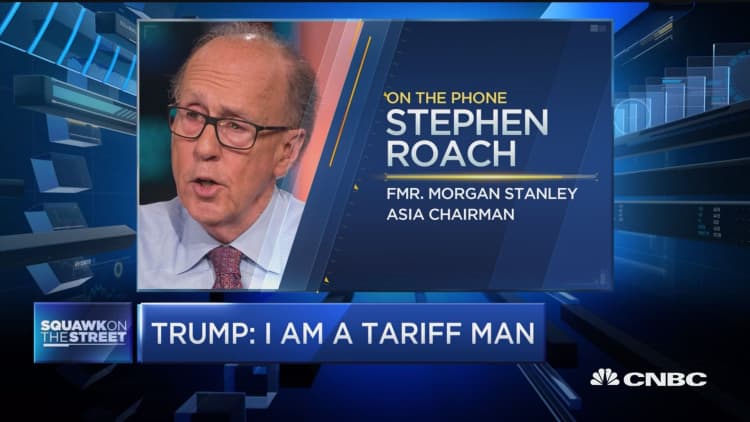
The United States' top trade negotiator lacks evidence against China, veteran economist Stephen Roach told CNBC Tuesday.
Therefore, investors need to assess the situation carefully, he said.
The former Morgan Stanley Asia chairman blasted U.S. Trade Representative Robert Lighthizer's Section 301 investigation, released in March, as making a number of "unsubstantiated" claims that President Donald Trump used to impose tariffs on $250 billion worth of Chinese imports.
Lighthizer is Trump's top advisor in the China trade discussions.
"I have to reluctantly say that this report makes a very weak case in trying to justify tariffs and the risk of a trade war," Roach said on "Squawk on the Street."
The Yale University senior fellow was also critical of the Trump administration's accusations of China forcing tech transfers, having predatory M&A policies and cyberhacking. Roach says that "there's no evidence whatsoever" China forced tech transfers through joint ventures. Plus, the data does not prove it uses predatory M&A practices and there is no new evidence of China cyberhacking since 2015, he argued.
"We need to be much more fact-based, which is always a problem, I think, with the Trump administration," Roach said.
He said investors are worried about where talks with the country could lead.
Initially, U.S. stocks rose after Trump and Chinese President Xi Jinping announced a 90-day cease-fire in the trade war. However, Roach said uncertainty lingered about the direction of negotiations. China said it would purchase a "substantial" amount of U.S. products in industries such as agriculture, energy and industrial, but details about those buys have not been revealed.
Trump also went as far as to remind the public that he is "a Tariff Man" if a deal is not reached.
"Once the bounce has concluded, now we really have to be careful in assessing where these negotiations are about to go," Roach said.
Stocks fell sharply Tuesday, with the Dow Jones Industrial Average tanking about 644 points as of midday. The was down more than 3 percent, and the Nasdaq Composite was dragging more than 3.5 percent. Investors are now concerned about a bond-market action that could signal a possible economic slowdown, as well as the uncertainty around U.S.-China trade.
— CNBC's Fred Imbert contributed to this report.
.


